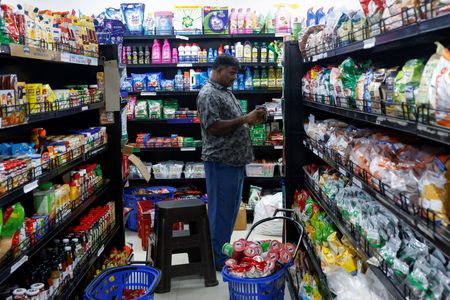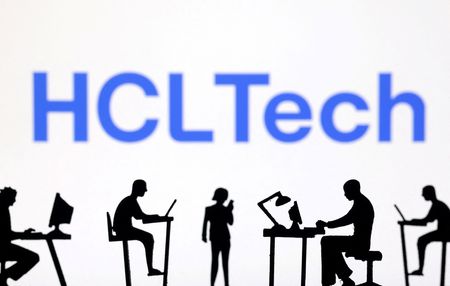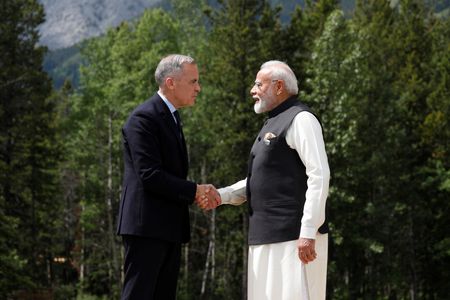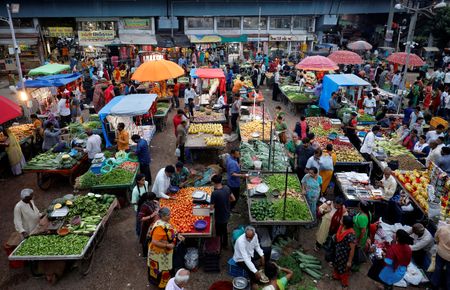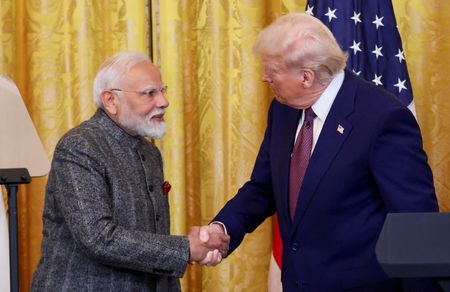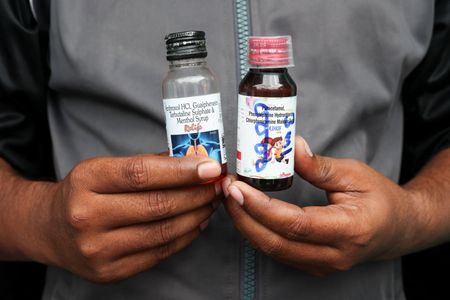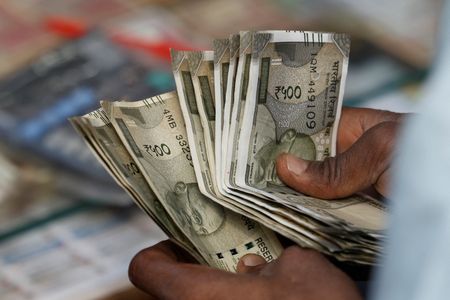By Nikunj Ohri
NEW DELHI (Reuters) -India’s annual retail inflation slowed to an eight-year low of 1.54% in September, government data showed on Monday, as food prices eased, leaving room for the central bank to cut rates one more time when it meets in December.
Retail inflation was below a Reuters poll of 1.7% and the lowest since June 2017, when it stood at 1.46%.
It was at 2.07% in August.
The figure has also dropped below the Reserve Bank of India’s 2%-6% tolerance band for a second time in three months. It had eased below 2% in July.
The RBI is mandated to not let inflation overshoot its tolerance range of 2%-6% for more than three quarters in a row.
The central bank is expected to reduce interest rates by 25 basis points in its December review, said Aditi Nayar, Chief Economist at ICRA, adding that the timing of rate cuts is contingent on the previous rate cuts passing through and the growth implications of the tax cuts and U.S. tariffs.
The RBI has reduced interest rates by 100 basis points so far this year. It left the policy rate unchanged at 5.5% at its October monetary policy review, but signalled scope for a rate cut in December.
The decline in inflation in September is mainly attributed to a favourable base effect and to a decline in the inflation of vegetables, oil and fats, fruits, pulses, cereal, and eggs, the government said in its statement.
Food prices fell 2.28% year-on-year in September versus a revised 0.64% drop in August. Vegetable prices declined 21.38% after a 15.92% fall in the previous month.
Softer food prices prompted the RBI this month to trim its inflation forecast for the current financial year to 2.6% from 3.1%.
Core inflation, which excludes volatile items such as food and energy and is an indicator of demand in the economy, was at 4.5% in September compared with 4.1% in August, according to two economists.
Higher gold prices and housing costs pushed up core inflation, economists said.
A cut in consumer taxes, which took effect from September 22, will bring down core inflation starting October, said Madan Sabnavis, chief economist at Bank of Baroda.
The U.S. has imposed tariffs of up to 50% on Indian goods, but Prime Minister Narendra Modi’s tax cuts on everything from soaps to cars are expected to offset the impact on growth and ease inflation during the September–December festival season.
The central bank this month raised its economic growth forecast to 6.8% from 6.5%, putting it at the upper end of the government’s 6.3%–6.8% estimate.
At this pace, India would continue to grow at the fastest pace among major economies.
(Reporting by Nikunj Ohri; Editing by Janane Venkatraman)

